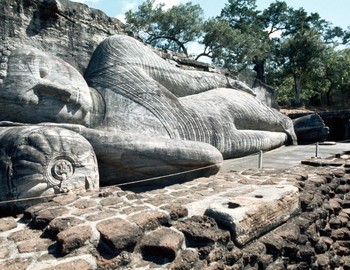Apr 6 2005
Sleep, a vital ingredient in life, can sometimes become difficult as humans get older. But a recent study by researchers at Case Western Reserve University's Frances Payne Bolton School of Nursing and the Buddhist Tzu-Chi General Hospital in Taiwan shows that listening to soft music at bedtime will help older adults sleep better and longer.

The research, published in the February 2005 edition of The Journal of Advanced Nursing, found that older people with sleep problems reported a 35 percent improvement after they started listening to 45 minutes of soft music before bedtime. Researchers Hui-Ling Lai, director of the Community Health Center at the Buddhist Tzu-Chi General Hospital, an assistant professor at Tzu Chi University in Taiwan and Case alumna, and Marion Good, professor of nursing at Case, studied the sleeping patterns of 60 people aged 60-83, randomly designating them in equal numbers into a music group and a control group. They discovered that the 30 who had listened to carefully selected music experienced physical changes that aided restful sleep. These included lower heart and respiratory rates.
"The difference between the music group and the control group was clinically significant," said Lai, lead author of the study. "The music group reported a 26 percent overall improvement in the first week and this figure continued to rise as they mastered the technique of relaxing to the sedative music."
Participants in the study were older adults with sleep difficulties who lived in central Taiwan. Those with certain medical conditions were excluded, as were people taking sleep medication, drinking high levels of caffeine or using existing relaxation techniques such as meditation.
The music group was able to choose from six tapes that featured soft, slow music. These included one tape of Chinese folk music and five that had been found effective for reducing postoperative pain in research conducted by Good.
Good, one of the country's leading researchers of drug-free methods to reduce postoperative pain, has found in previous studies that the combination of relaxation and music relieved postoperative abdominal pain significantly more than painkillers.
Sleep quality was measured in the music group before they started using the technique and then monitored over the three-week study period. The sleep quality of the control group, who did not use the music tapes, also was assessed over the same period.
People in the music group showed significantly better scores in overall sleep quality and in five of the six subcategories used to measure sleep quality. These included better and longer nighttime sleep and less dysfunction during the day. The only element that did not improve after listening to music was sleep disturbance.
"Music is pleasant and safe and the technique we used in our study is quick and easy to learn is low cost, and could be used readily by nurses," Good said. "It is easy to use and does not cause side effects."
Sleep disorders can result in tiredness, fatigue, depression, greater anxiety, irritability, pain sensitivity, muscle tremors and lack of daytime alertness. Lai and Good explain that although there is much research about sleep, few studies have focused on the effects of music in improving sleep quality, particularly in older adults.
http://www.cwru.edu/